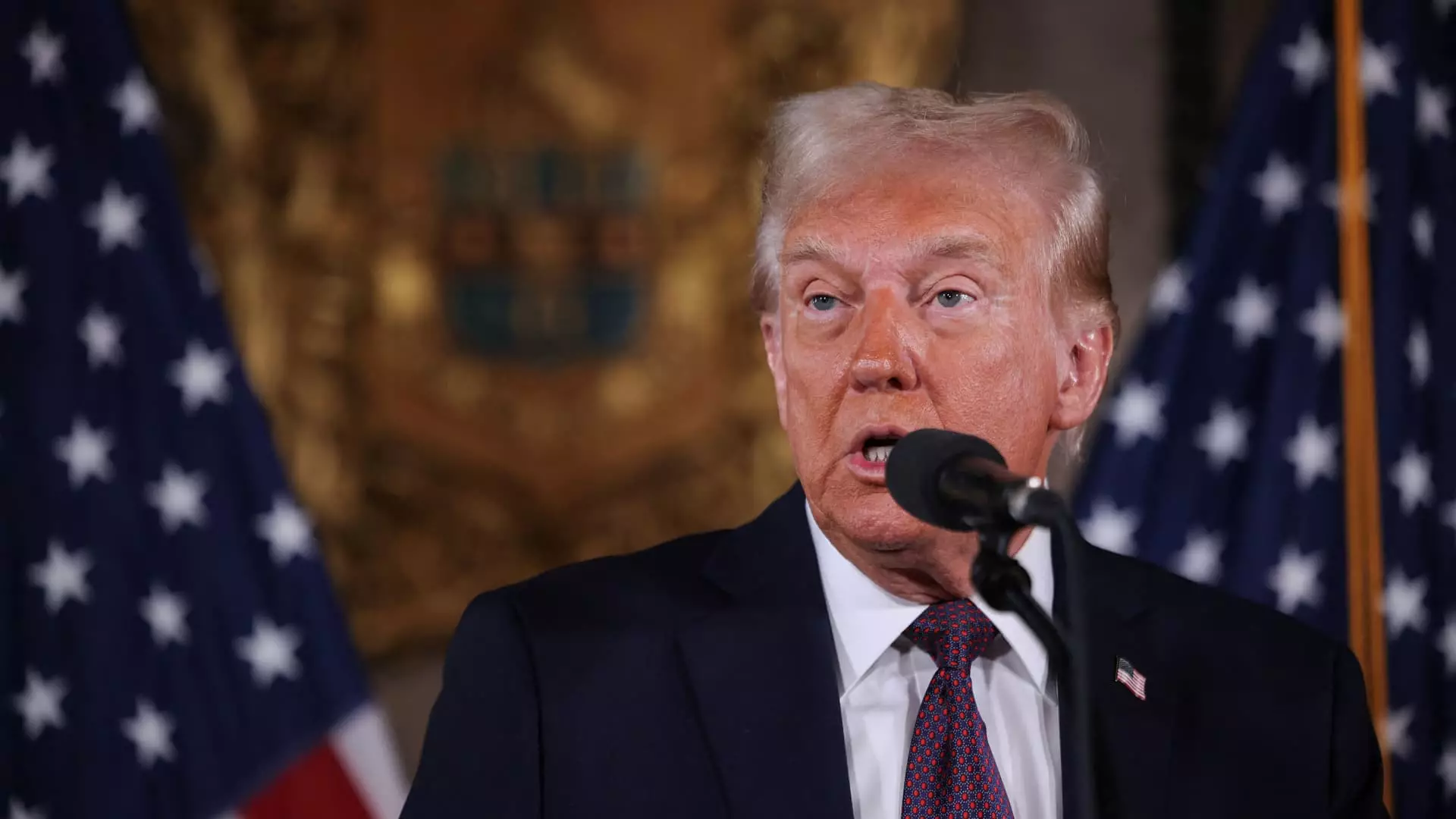In a noteworthy development for the U.S. economy, President-elect Donald Trump made headlines with his announcement regarding a monumental $20 billion foreign investment aimed at establishing new data centers throughout the United States. The commitment comes from Hussain Sajwani, a billionaire from the United Arab Emirates and founder of DAMAC Properties. This ambitious plan, revealed at Trump’s Mar-a-Lago estate in Florida, signals a proactive step toward rejuvenating the American tech landscape and promoting foreign capital inflows. Sajwani’s willingness to invest this significant sum reflects a growing trend among global business leaders eager to engage with the United States in the wake of Trump’s election.
The first phase of this large-scale investment will roll out in eight states that include Texas, Arizona, Oklahoma, Louisiana, Ohio, Illinois, Michigan, and Indiana. These regions have been carefully selected for their potential to host data centers, which are essential in the digital age, supporting everything from cloud computing to big data analysis. By investing in these particular areas, Sajwani not only taps into local resources but also reinforces economic activities that could provide employment opportunities and stimulate regional growth.
Global Business Leaders Taking Note
Sajwani’s commitment is not an isolated case; international business figures are increasingly recognizing the advantages of investing in the U.S. post-Trump’s election. The announcement follows a similar pledge by SoftBank CEO Masayoshi Son, who indicated plans to invest $100 billion and generate 100,000 jobs during Trump’s inaugural term. This growing trend indicates a burgeoning confidence in the U.S. market, touted by foreign investors as a ripe opportunity to expand their portfolios and capitalize on the promise of a business-friendly environment.
Sajwani explicitly linked the enthusiasm behind his investment to Trump’s victory, suggesting that the electoral outcome has reinvigorated his commitment to the American market. Such sentiments highlight the broader implications of political changes on foreign investment patterns. As Trump prepares to assume office on January 20, he has been vocal about his intentions to attract foreign entities to the U.S. through incentives like expedited permits for significant investments, which could potentially reshape America’s economic landscape.
A New Era of Investment?
This announcement by Sajwani could represent the beginning of a new era where foreign investors feel more empowered to engage with the United States. By creating favorable conditions for businesses to thrive, the Trump administration may well pave the way for a transformative shift in the dynamics of American commerce and foreign relations. The influx of capital, particularly in tech-forward segments like data centers, could reinforce the U.S.’s position as a global leader in technology and innovation.
As the nation gears up for Trump’s presidency, the anticipated foreign investments underline the promise of a vibrant economic future, contingent on the successful execution of these ambitious plans. How this unfolds will be vital not only for economic growth but for the international perception of the U.S. as an investment hub in the years to come.

